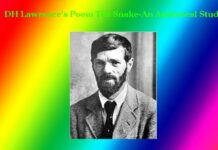Al-Khansa | Life Sketch and Poetic Career
Al-Khansa Al-Khansa Life Sketch and Poetic Career
Al-Khansa | Life Sketch and Poetic Career
Arabic poetry developed unprecedentedly during the pre-Islamic period and many male poets as well as female poets made significant contributions to this field. However, the number of female poets was smaller than that of male poets, but this number was not negligible. Historical evidence suggests that more than sixty women poets existed in the pre-Islamic period between 500 AD and 622 AD and they composed poetry alongside male poets. It is known that the Abbasid poet Abu Nuwas memorized the poetry of sixty Arabic women poets of the pre-Islamic period. In addition, the Diwan al-Hamasa, compiled by Abu Tammam and al-Buhtari, also contained poems by several women poets. This suggests that there were women poets in that era and they were not few in number. They also contributed significantly to the development of Arabic poetry. Unfortunately, the poems of those poets have been lost from the pages of history due to a lack of preservation. This is certainly an irreparable loss to Arabic literature. However, among the many women poets of the pre-Islamic and early Islamic periods whose names appear in the pages of history are Al-Khansa, Khirnik, Laila Afifa, Jalila bint Murrah, etc. Below is a brief introduction to Al-Khansa and a glimpse of her poetic career.
Brief Life Sketch: Al-Khansa (Amr Khancha), the full name was Tumadir bint Amor Khansa, abbreviated Al Khansa. He was a poet of both the pre-Islamic and early Islamic periods. This woman poet was born in the tribe of Salim who lived in Najd. Her exact date of birth is unknown, but it is believed that she was born in or around 575 AD. In short, he was a contemporary of the Prophet Muhammad (peace be upon him). She possessed a fine physique and was excellent in character. She married twice and became the mother of six children. Legend says that all of her children were poets. She was mainly a poet of elegiac poems and she composed her elegies mourning the death of her two brothers who were killed in the sectarian conflict. She recited poetry in front of the poet Nabigha at the Ukaz Fair in Mecca and Nabigha was impressed by her poem and remarked, “If this blind poet (A’sha) had not recited poetry before you, I would have called you the best poet of the year.”
After being heard the name of the Prophet Muhammad (peace be upon him), she went to Medina with some of her relatives and embraced Islam. She also recited poems to the Prophet. The Prophet Muhammad (peace be upon him) was fascinated by her recitation of poetry and expressed interest in hearing more poetry recitations from her.
Her children are also known to have embraced Islam with the Prophet, and four of her sons were killed in the Battle of Qasediya in 637 CE. Upon hearing the news that his four sons had been killed in the battle, Amor Khansa said, “All praise belongs to Allah who has honored me by killing them. This poet died in 646 AD.
Poetic Career: Al Khansa is famous as a composer of elegy (mourning poetry). It is estimated that he wrote hundreds of poems, but only about 1,000 verses of her poems have been preserved. Most of her poems were written in mourning for her two brothers and relatives who were killed in the sectarian conflict. Her poems were short but loaded with deep and touching emotions. Her language was vivid, rhythmic and simple. Her imagination was fresh and fascinating. There is no obscenity in her poetry. Her poetry was not entirely religious, although it contained references to the greatness of God and His mercy. She depicted the sorrows, laughter and tears of her personal life, the rough struggles of life in the desert, etc. in her poems.
In a nutshell, it can be said that Al-Khansa was able to establish Arabic mourning poetry in a distinguished rank. She was undoubtedly one of the greatest women poets of the pre-Islamic and early Islamic periods. 0 0 0.
Read More: A Brief History of Arabic Literature: Pre-Islamic Period (500 AD-622 AD)
Note: The article ‘Al-Khansa Al-Khansa Life Sketch and Poetic Career’ originally belongs to the book entitled ‘A Brief History of the Arabic Literature: Early Islamic Period (622 AD -661 AD)’ by Menonim Menonimus.
The Qur’an: Source of Arabic Language and Literature
Related Searches:
Books of Literary Criticism by M. Menonimus:
- World Short Story Criticism
- World Poetry Criticism
- World Drama Criticism
- World Novel Criticism
- World Essay Criticism
- Indian English Poetry Criticism
- Indian English Poets and Poetry Chief Features
- Emily Dickinson’s Poetry-A Thematic Study
- Walt Whitman’s Poetry-A Thematic Study
- Critical Essays on English Poetry
- Tawfiq al-Hakim’s Novel: Return of the Spirit-An Analytical Study
- Tawfiq al-Hakim’s Novel: ‘Yawmiyyat Naib Fil Arayaf’-An Analytical Study
- Analytical Studies of Some Arabic Short Stories
- A Brief History of Arabic Literature: Pre-Islamic Period (500 AD-622 AD)
- A Brief History of Arabic Literature: Early Islamic Period (622 AD-661 AD) …











